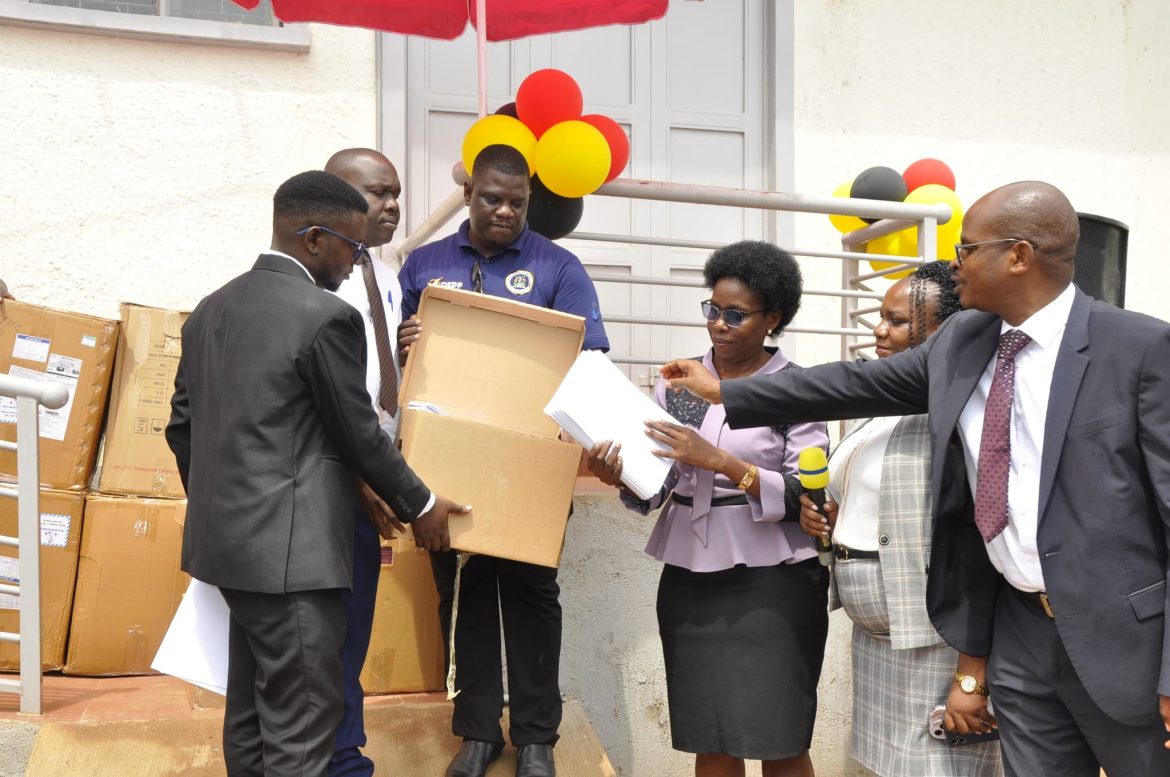The Ugandan government has begun the official distribution of over 57,325 freehold land titles to citizens across various regions of the country, including the Eastern, Western, and Northern Regions. This announcement was made by Minister of Lands, Housing, and Urban Development, Judith Nabakooba, during a formal address at the Data Processing Centre at the Mapping and Surveys Department in Entebbe.
According to the Minister, this bold step is part of efforts by the administration of President Yoweri Museveni to increase land tenure security, reduce land disputes, and fight land grabbing across Uganda. The free land titles are being given in districts like Bukedea, Serere, Soroti, and several others, in order to promote stability, peace, and economic development in communities.
Judith Nabakooba said the project is being carried out under the Systematic Land Adjudication and Certification (SLAAC) initiative, an innovative program of the ruling National Resistance Movement (NRM) government. She stated that the titles will give citizens the legal right to their lands and help eliminate issues like double titling, land fraud, and encroachment.
Speaking on the economic benefit, the Minister explained that with official land titles, Ugandans will now be able to use their land as collateral to access loans from Savings and Credit Cooperative Organizations (SACCOs) and other financial institutions. This ties directly into the Parish Development Model (PDM), which provides one million shillings to support rural development and uplift communities.
“This project gives people the chance to register their land without spending the high costs usually needed,” Nabakooba said. “Normally, getting a land title can cost between Shs 5 million and Shs 10 million, which is too expensive for the average citizen. But now, people can receive these titles for just Shs 80,000 in taxes, with no extra fees.”
The Minister also used the occasion to appreciate the President for making it possible for the Ministry to carry out such a project. She emphasized that land registration would boost Uganda’s economy by increasing land value, creating jobs in the real estate sector, and generating more revenue from land transactions. “We expect millions of new jobs and billions of shillings in government revenue as a result of this process,” she added.
To ensure smooth and transparent delivery of the titles, Resident District Commissioners (RDCs) and officials under the Ministry Zonal Offices have been instructed to carry out community sensitization and supervise the handover process. The government wants citizens to fully understand their land rights and avoid any confusion that may arise during distribution.
The project is also backed by the World Bank, and the government is starting with the top 10 districts where the need for land titles is highest. These places will receive their titles first before the program expands further. In Maracha District, for example, over 20,000 land titles are already prepared for distribution.
So far, about 100,000 titles have been dispatched nationwide, and the government has promised that no Ugandan will be left behind. The Minister stressed that nobody is allowed to use the title to take over another person’s land, as each document is connected to proper mapping and surveys.
“This is not just a paper; it is a transformative tool for economic empowerment and land rights protection,” Nabakooba noted. “By giving people the confidence of ownership, we are helping them to plan, invest, and grow.”
Ugandans who receive these titles can now take advantage of the formal land ownership system to improve their livelihoods, apply for government loans, and even attract private investments in agriculture and housing.
The land title initiative is part of a broader national agenda aimed at supporting Vision 2040, which includes goals like improved infrastructure, reduced poverty, and stronger rural development. The project stands as one of the biggest land reform efforts in Uganda’s history.
